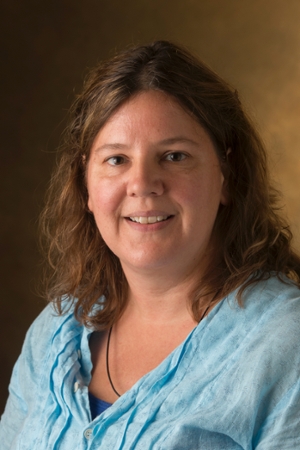 A catastrophic earthquake and its aftershocks devastated the South Asian country of Nepal in April and May 2015. Media coverage of the country’s worst natural disaster has ensued, but it likely hasn’t included the perspectives of Nepali natives who live in remote villages and speak un- or under-documented languages.
A catastrophic earthquake and its aftershocks devastated the South Asian country of Nepal in April and May 2015. Media coverage of the country’s worst natural disaster has ensued, but it likely hasn’t included the perspectives of Nepali natives who live in remote villages and speak un- or under-documented languages.
With the help of a $70,287 RAPID award from the National Science Foundation, Southern Illinois University Edwardsville researcher Kristine Hildebrandt is in Nepal gathering the stories of Tibeto-Burman language-speaking peoples. Hildebrandt is the principal investigator of the research project, titled “Narrating Disaster: Calibrating Causality and Responses to the 2015 Earthquakes in Nepal.”
“These situations are often very dynamic and changeable, and so immediacy in access to the research site is of high importance,” said Hildebrandt, associate professor of English Language and Literature in the SIUE College of Arts and Sciences. “To my knowledge, an ethno-linguistic study like this has not been conducted in areas with great linguistic and cultural diversity.”
“Dr. Hildebrandt’s work in documenting the effects of the disaster and the response is important to our understanding of how these two forces impact the social, economic and linguistic structures of a community,” added Jerry Weinberg, associate provost for research and dean of the SIUE Graduate School. “Dr. Hildebrandt’s long-term work of studying endangered languages in Nepal gives her unique qualifications for performing this study.”
RAPID awards are highly competitive. Their purpose is to provide funding for “rapid response research” in wake of natural disasters and other unanticipated events. Hildebrandt emphasizes the importance of reaching these Nepali people and documenting their stories as quickly as possible.
“With the passage of time, the memories of individuals with whom we work in Nepal might become generalized into larger collective reports on the earthquakes,” explained Hildebrandt. “We want to interview local residents and residents returning home to help as soon as possible to find out their experiences, their plans and their concerns regarding survival and rebuilding within their own cultural and linguistic environments.”
Hildebrandt’s research team includes Dr. Geoff Childs of Washington University in St. Louis, Dr. Sienna Craig of Dartmouth College and Dr. Mark Donohue of Australian National University. Two linguistics researchers, as well as 16 field-based researchers who are Nepal natives, will help carry out the research.
Hildebrandt will train the field-based researchers. They will spend several months collecting audio and video interviews and narratives with earthquake survivors, spoken in some 11 local languages, in three districts of Nepal’s Western Zone: Mustang, Manang and Gorkha.
“We will ask questions about personal experiences of the immediate aftermath of the earthquakes,” Hildebrandt explained. “We will ask natives with specialized knowledge to describe procedures involved in rebuilding structures with religious or cultural significance. We will also ask for information about death rituals after catastrophic events.”
The researchers’ goal is to shed light on how people make their lives in high-risk areas and how they organize reconstruction and recovery after devastating events like an earthquake.
“The massive earthquakes have the effect of amplifying already present issues of language contact and language endangerment in remote parts of Nepal,” Hildebrandt said. “We feel it is important to examine population structures and movements in light of this natural disaster.
“We are getting local perspectives, and not just perspectives from the international aid community. These are very different types of perspectives. It will likely be that the needs and wants of these different groups are themselves quite different.”
Hildebrandt also hopes to establish interview tools that other ethnographers will be able to modify and use in other, future scenarios where sudden and great change happens, resulting in population movements. The research findings will be transcribed and translated into Nepali, Tibetan and English. Researchers will use their findings to produce scholarly papers and presentations.
Hildebrandt brought construction and healthcare materials along with her for smaller, more remotely located communities who need it most. The SIUE Department of English Language and Literature, and the SIU School of Dental Medicine donated the materials including facemasks, medical and construction gloves, goggles, flashlights and protective tarps.
Photo: Dr. Kristine Hildebrandt, associate professor of English Language and Literature in the SIUE College of Arts and Sciences.